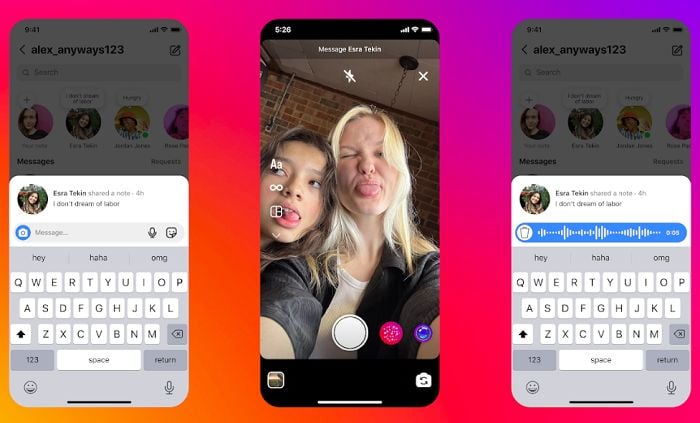Meta’s announced a major action against a known sextortion group operating out of Nigeria, which has led to the removal of around 70,000 cumulative profiles, Pages and groups from Facebook and IG, as well as improved measures to keep them from returning.
Meta says that these accounts were associated with a group called “Yahoo Boys”, a known scam collective. Yahoo Boys originally relied upon the old “Nigerian Prince” type of scam, where they’d try to dupe unsuspecting marks with promises of riches. But more recently, they’ve switched to romance scams, where they create fake profiles, then convince their targets to share money and/or personal details to maintain the relationship.
Or, as in this latest push from Meta, intimate images, which they then use to extort money from their victims.
And they’ve been highly active, on IG specifically.
As per Meta:
“We removed around 63,000 Instagram accounts in Nigeria that attempted to directly engage in financial sextortion scams. These included a smaller coordinated network of around 2,500 accounts that we were able to link to a group of around 20 individuals. They targeted primarily adult men in the US and used fake accounts to mask their identities.”
63k profiles is a lot, and you can imagine how this group could look to use a coordinated effort of this size to intimidate targets.
In addition to this, Meta also notes that it detected a coordinated network of around 2,500 accounts through a combination of new technical signals and processes.
“The majority of these accounts had already been detected and disabled by our enforcement systems, and this investigation allowed us to remove the remaining accounts and understand more about the techniques being used to improve our automated detection.”
So, essentially, Meta’s been able to use this project to learn more about the way in which Yahoo Boys and other groups coordinate and work together to pressure users.
Which, ideally, will see Meta better placed to stop the same happening in future, but as always, whenever detection systems improve, so too do the tactics deployed by these groups. It’s an ongoing game of cat and mouse, but on balance, based on its ongoing reporting, it does seem that Meta has been able to gain the upper hand in some of the larger, more impactful (at scale) instances.
In addition to these profiles, Meta also removed 1,300 Facebook profiles, and 5,700 groups, that had been providing tips on how to conduct online scams. These groups were also seemingly associated with the Yahoo Boys collective.
“Their efforts included offering to sell scripts and guides to use when scamming people, and sharing links to collections of photos to use when populating fake accounts.”
Sextortion and romance scams are right up there among the worst kinds of online crime, as they target vulnerable and desperate people, with promises of something that will never eventuate. Of course, all scams target weakness, but these types of programs seem especially cruel, and as such, it’s good to see Meta taking more steps to stamp them out.
But again, the scammers will evolve, and in the age of AI, there are now all new vectors for them to tap into to initiate their schemes.
Hopefully, Meta will also be able to evolve its systems in line, in order to maintain some kind of balance in enforcement.













